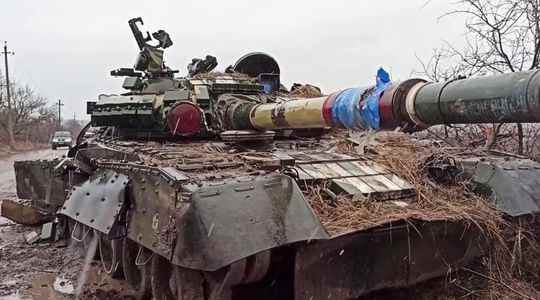Eric Moses. His name is more familiar to courthouses than to public opinion. Recognized, the Norwegian judge has just been appointed to lead the United Nations investigation into the violations committed by Russia during the war in Ukraine. The former president of the International Criminal Tribunal for Rwanda, former judge at the Supreme Court of Norway and the European Court of Human Rights, will be responsible for carrying out investigations aimed at documenting potential abuses by Moscow forces on Ukrainian soil since its invasion on February 24.
This meticulous work, which will last at least a year, follows a Ukrainian resolution tabled before the UN Human Rights Council and approved on March 4 paving the way for the holding of an international commission of inquiry. on human rights violations in the context of the conflict. Thousands of people have lost their lives since the start of the war. More than four million Ukrainians have fled their country. Erik Morse will not be alone in investigating Russian actions since the International Criminal Court has also started a program to shed light on the accusations of war crimes in Ukraine.
- Who are the judges in charge of leading the UN investigation into Russian abuses?
Alongside Erik Morse, two other high-ranking personalities will take part in the work of the UN. It was the president of the Human Rights Council, Federico Villegas, who appointed them. The Colombian, Pablo de Greiff, who has been the main expert of the United Nations for the promotion of truth, justice and reparations will support Jasminka Dzumhur, mediator of human rights in Bosnia and Herzegovina. In all, the inquiry committee is made up of 47 members. These seasoned investigators will be responsible for “collecting, collating and analyzing evidence attesting to (…) violations” of human rights and international humanitarian law, said the international organization.
- Who called for this investigation?
It responds to a Ukrainian resolution adopted by the UN on March 4. In this text, kyiv condemned “the violations of human rights and violations of these rights resulting from the aggression of the Russian Federation” and demanded a rapid withdrawal of the Russian army. The United Nations then chose to investigate the Ukrainian allegations by setting up this commission of 47 investigators. They are all independent.
- What does it consist of?
This independent panel must shed light on a delicate question: whether Russia committed abuses during its invasion of Ukraine, which began on February 24. The meaning of this work is both to collect forensic elements and to question the main witnesses of the fighting with a view to future trials.
It is a question of identifying those responsible for these violations with a clear objective: “that they have to answer for their acts”. The first results will be released in September. This independent international commission of inquiry is the highest level of investigation carried out by the Human Rights Council.
- Is it a special investigation unit?
While the panel was set up specifically to document what is happening in Ukraine, it does not have special powers. The work carried out will respond to the same logic as that exercised within the framework of the United Nations investigations into war crimes in Syria, Myanmar and other conflicts. These reports are regularly used in the context of criminal proceedings, particularly against military or political leaders. It now remains for Erik Mose and the 46 other investigators to measure whether Vladimir Putin and his generals will have to sit in the dock one day.
